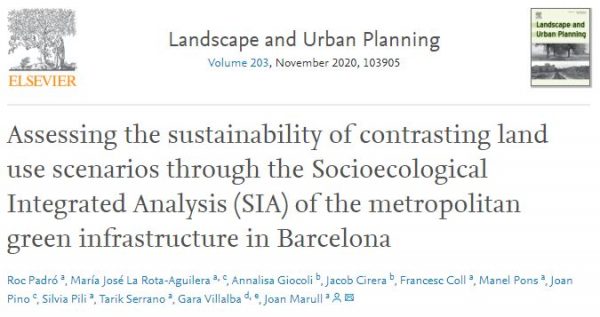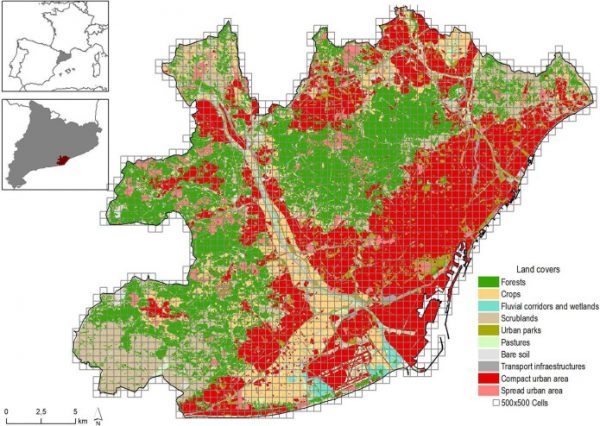Publication in Landscape and Urban Planning
3 August 2020See full article: https://doi.org/10.1016/j.landurbplan.2020.103905
Urban development and the sprawl of transport infrastructures have disregarded the crucial function of metropolitan landscape in provisioning human well-being and biodiversity. This research aims to contribute to the challenges of Planning for Sustainability by proposing a Socioecological Integrated Analysis (SIA) to support the Land Use Master Plan in the Barcelona Metropolitan Area, to conciliate urban development with the performance of surrounding open spaces. The paper evaluates four different land cover scenarios (current, trending, alternative and potential), and two kinds of agricultural management (conventional and a socioecological transition towards organic agriculture). The results suggest that although there are significant improvements on job provisioning and nutrient-cycling closures (circular economy), certified organic agriculture is not enough to overcome some trends of industrialized agrarian systems such as low energy efficiency or poor improvements in greenhouse gas emissions. The results also show a crossed effect between social metabolism and landscape ecology where changes in the management could affect the landscape functioning while changes in the land covers are particularly affecting the resource use. Then, deeper changes that consider together land use and metabolic flows are required to promote more sustainable agroecological transitions. The SIA model is an important conceptual and methodological step forward that facilitates the transition towards sustainable land use policies.
